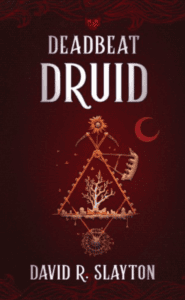After touring for my latest release, I’m taking stock of what I’ve learned, what I’d do differently, and where I want to improve as my career continues. The following are some lessons I’ve picked up along the way that I’d like to share.
First, all writing advice, including what I’m offering here, is just a suggestion. I learned this one a while ago. I open every workshop I teach with it because we get so much advice and while well intentioned, following it to the letter can be reductive or even damaging to our craft. For example, we’re constantly told to show not tell, but there are times when telling is useful for setting the pace of your story or skipping a bit of boring exposition. Sometimes you need to hang a lantern on something and call it out directly to provide clarity to your readers.
Make time for your writing. Steal it if you have to.
This also applies to how you incorporate or use the feedback you receive. Whether from a professional or a beta reader, don’t treat it a hard, unbreakable rule. Evaluate what you’re told, check your defensive tendencies, and consider if the feedback is valid. Ultimately, your stories are yours to write. It’s usually a good rule to consider if something needs improvement, if the feedback has revealed an issue, but not to treat advice on how to fix it as an absolute.
Give yourself permission to not write every day.
While I do believe that regular practice is essential to my development as a writer, I long ago let go of the maxim that I had to write every day. Like many authors I still work a full-time day job, have a spouse, and other obligations. I also did not adequately plan for how much time promotion, appearance, and reader engagement would cost me once I became published. Trying to commit to daily writing was breaking my motivation. I’d fail to meet word count then beat myself up about it. I’ve since adjusted my plan to a series of weekly goals. This gives me the flexibility to not write for a day when my life demands it. I can make up the work on the weekend or get up early for a few days if I need to.
Be selfish with your writing time.
I’m a nice midwestern boy at heart, and this one was hard to learn. Writing, and writing well, takes focus and dedication. Sometimes the voice of a novel is like a fish that’s constantly slipping out of my hands and back under the water. Every little distraction, from my partner asking me a question to my elderly cat wanting a snack makes me lose my grip on the story and breaks my flow.
Make time for your writing. Steal it if you have to. It might mean setting some boundaries with the humans in your life or turning off your phone. I’ll hike over to the nearby Panera when I need to, noise-cancelling headphones at the ready, and grind until I’ve exhausted my mental energy.
Engaging in Internet drama doesn’t help you.
This advice is hard for me to follow because I like to stay informed, especially about the publishing industry. I also like to keep up with world events. Unfortunately, it’s far too easy to get engaged in endless scrolling, or worse, engage with some drama and let it distract me. I’ve taken a dietary stance with news, only consuming so much a day and always after my writing time if I can manage it. Drama, especially the kind generated by social media, is about getting us emotionally engaged. Stay out of it if you can and minimize its impact on your writing time. Save that energy for your work. Your mental health will thank you for it.
Avoid jealousy at all costs. It doesn’t help you
A piece of advice I got from the late Rachel Caine was to make writing my joy, my retreat from the world. That has served me well when things get rocky. If the world is too much, write. If the world is just sort of boring, write. Control the only thing you can, which is your writing.
Comparison is the thief of joy and is overall, pointless.
Luck plays a large component in an author’s success. The size of your advance or sales, who wins which award—a lot of these things come down to luck and timing, things that you ultimately cannot control.
It is beyond tempting to compare ourselves to others and ask why not me? Do your best to avoid this trap. You can focus your energy on improving your craft and building your writing life. When you see someone else succeeding, congratulate them and move on.
Avoid jealousy at all costs. It doesn’t help you. It can get you down and cost you motivation and focus.
Make friends with rejection.
Rejection is inevitable. Whether its your audience, an agent, or a publisher, rejection will come at some point in your career. Even best-selling, popular authors can see a book bomb.
Writing is hard. Build support for yourself inside and outside your writing life.
No one is going to care about your writing as much as you do, but forming a critique group or finding a circle of writing friends can give you somewhere to talk about your writing with people who are in the same boat as you. Our non-writing friends just don’t get it and our spouses all have a burn out point for how much book and writing talk they’re willing to take.
Give back as much as you take.
When you are part of a writing group or community, it’s important to engage with that community. If you take feedback from a critique group, give feedback to the other members. It can be tempting to consider other writers your competition, but we’re all in uncertain times. A little support or a kind word can go farther than you might realize, and you never know when you’re going to be the one in need.
Finally, when in doubt, be professional.
Your writing self is a public self, meaning that once your books are out there, people will find them. They’ll engage with them and with you. They’ll review or comment on your work and you won’t always agree with what they’re saying. Sometimes, you might even find yourself wildly misinterpreted. If you do not know how to respond to something someone says, you can always choose not to.
Control the only thing you can, which is your writing.
You do not have to read reviews of your work, and while that’s hard, it’s really the best practice. If you do read reviews, don’t respond. The most professional stance is to not engage. A pen name can be very helpful for creating a filter between you as a person and you as an author. Regardless, always try to remember that criticism leveled at you is not really about you, it’s about your public self and it’s about your work.
 David R. Slayton (he/him) grew up in Guthrie, Oklahoma, where finding fantasy novels was pretty challenging and finding fantasy novels with diverse characters was downright impossible. Now he lives in Denver, Colorado, and writes the books he always wanted to read. His debut, White Trash Warlock, was a finalist for the Colorado Book Award. In 2015, David founded Trick or Read, an initiative to give out books along with candy to children on Halloween as well as uplift lesser-known authors
David R. Slayton (he/him) grew up in Guthrie, Oklahoma, where finding fantasy novels was pretty challenging and finding fantasy novels with diverse characters was downright impossible. Now he lives in Denver, Colorado, and writes the books he always wanted to read. His debut, White Trash Warlock, was a finalist for the Colorado Book Award. In 2015, David founded Trick or Read, an initiative to give out books along with candy to children on Halloween as well as uplift lesser-known authors  or those from marginalized backgrounds. David is a regular speaker and panelist at fan cons and writing conferences. Find him online at www.DavidRSlayton.com.
or those from marginalized backgrounds. David is a regular speaker and panelist at fan cons and writing conferences. Find him online at www.DavidRSlayton.com.





